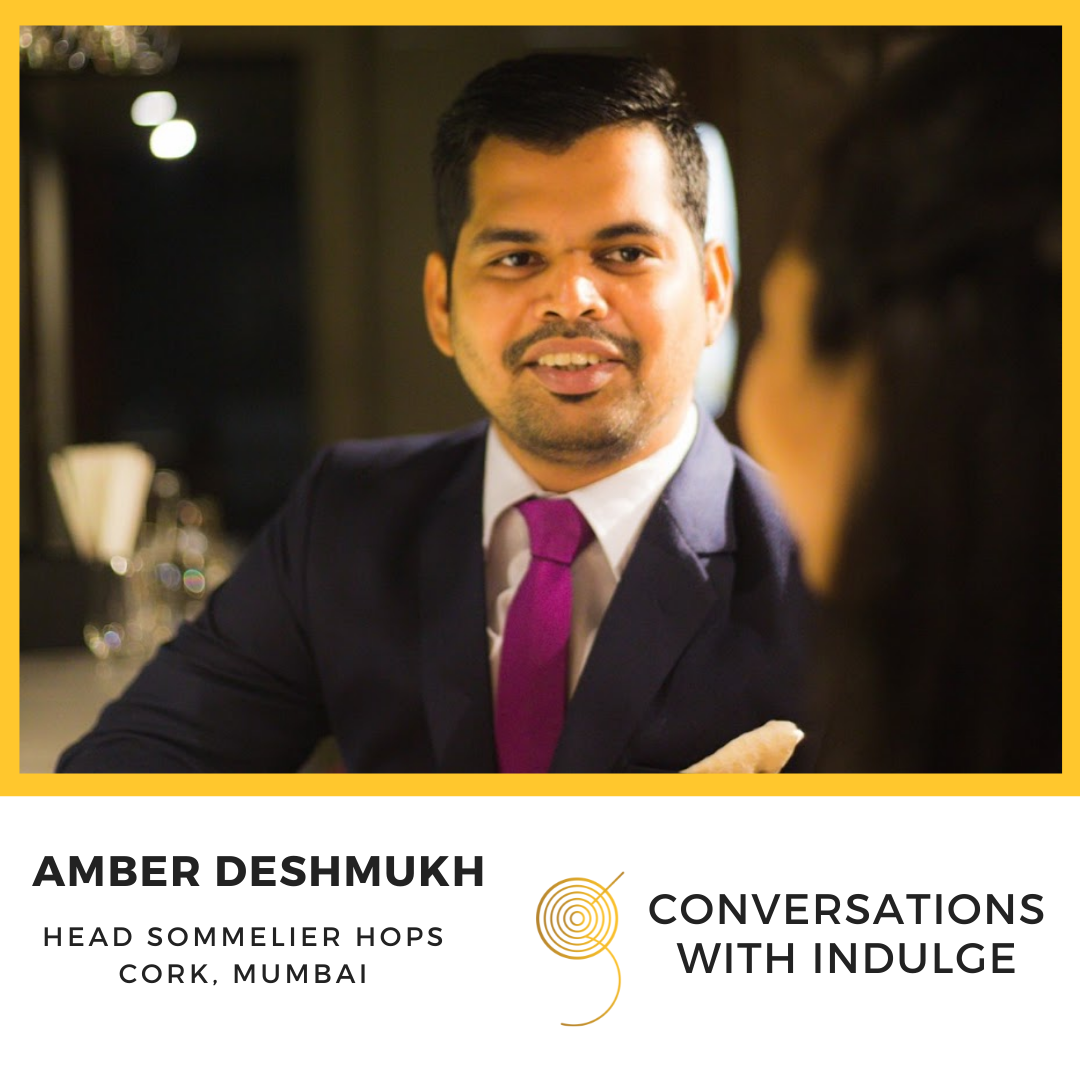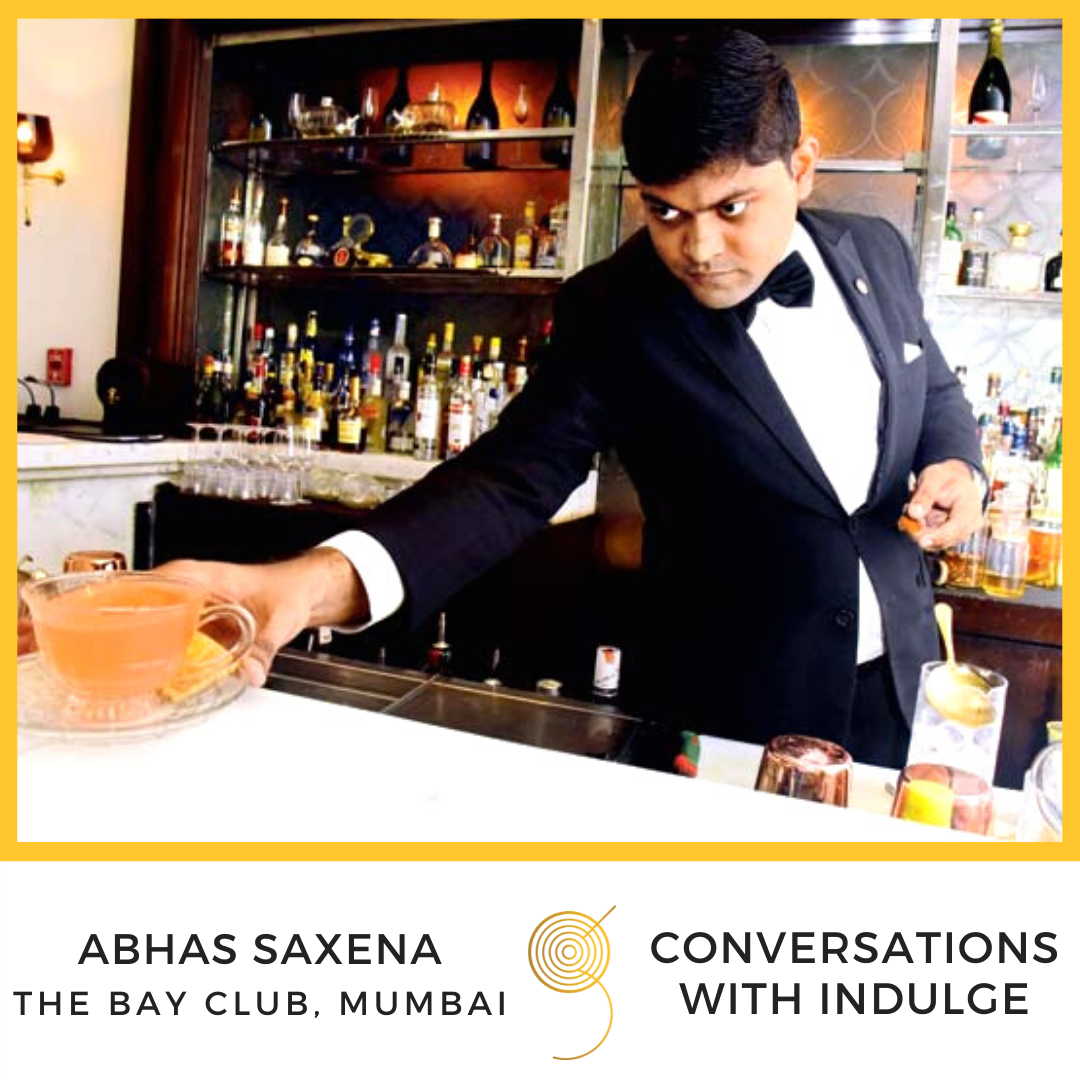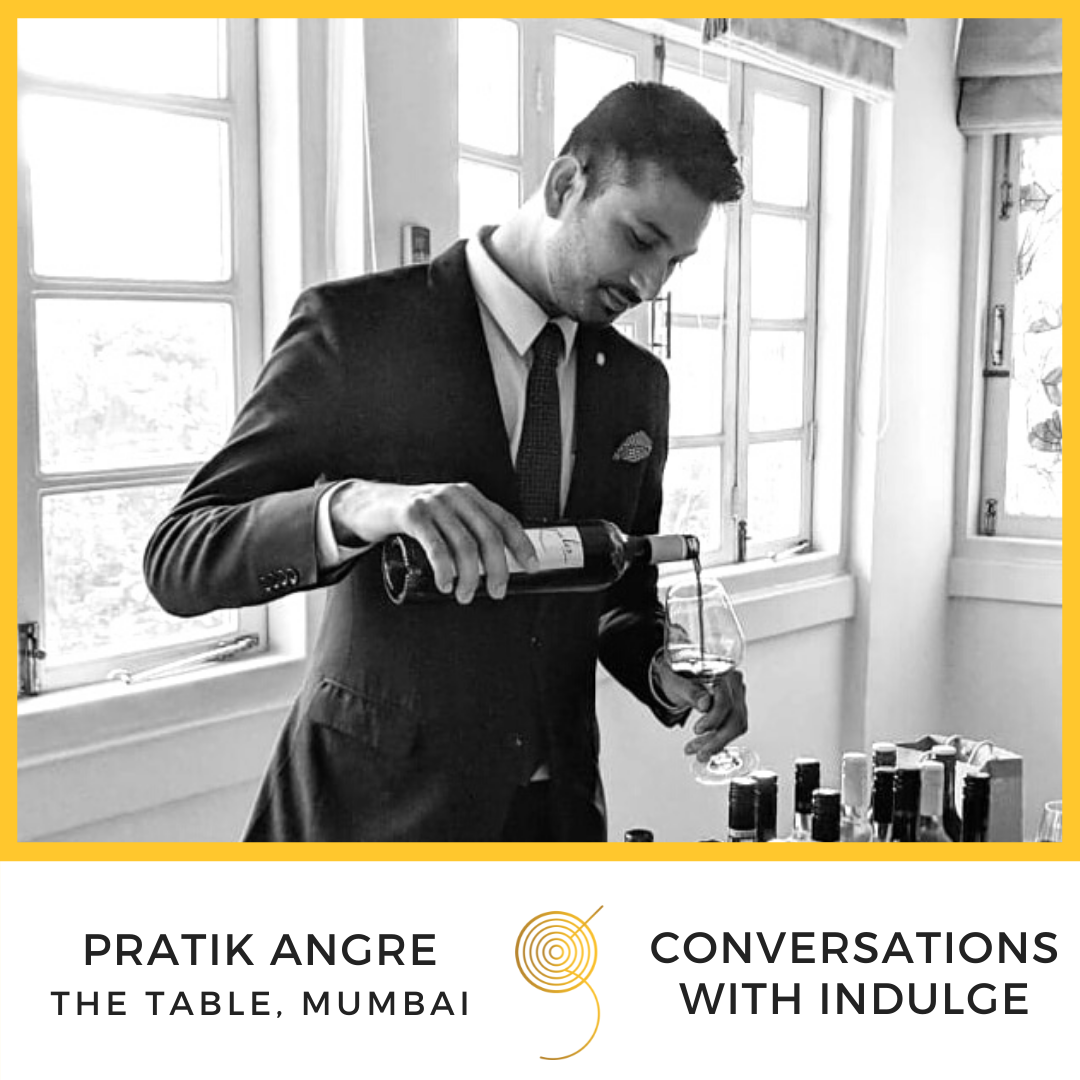Amber Deshmukh is the Group Sommelier for Hops Cork chain of ultra-modern retail stores, Mumbai. He is a certified Sommelier from the Court of Master Sommeliers and has pursued a bachelor’s degree in Wine Technology. Amber also loves trekking and has completed over 70. Here’s how our recent conversation with Amber went.
How do you plan to break the wine myths to your consumers?
There are a lot of myths revolving around this fantastic beverage called Wine, right from ageing (all wines get better with age), sugar content (related to Rosé and Riesling) to service of wine (choosing correct glassware or serving temperatures).
My simple and honest approach to breaking these myths is to suggest a wine with a small introduction which will prove that the facts are very different, or to suggest the correct way to drink the wine. It is important to deliver the correct information in the easiest possible way without making it too technical or boring for your guest. What matters is the information that you share in the first 30 seconds.
Tell us about your most unique experience in wine retail?
The concept of retail store in India is very different. Hops Cork is an Ultra-Modern Beer and Wine Boutique which is focused on customer interaction. We also supply wines for weddings and corporate events.
Once, I visited a client’s place to help them choose wines for the wedding. To make it exciting, I arranged a blind tasting at their home of six wines, of which they were to choose two for the wedding. They were very happy with the whole tasting and, it also broke the stereotype of choosing wines based on the price point and brand.
As a certified sommelier how do you bridge the gap of serving wines?
I started my career with the Marriott group and was working with JW Marriott Juhu for about 4 years where I polished my service skills. During that time, about 5-6 bottles of wines were opened by me on a daily basis.
Today the scenario is different being in retail. To make sure that I don’t lose the touch, every bottle that I open during any event or at home is as per the standards set by Court of Master Sommeliers. I often practice pouring 8 equal glasses from a sparkling wine bottle and decanting reds at Hops Cork and also at home (thanks to Lalit Rane for suggesting this practice module). I had also worked at a restaurant as a part timer (post my regular shift at Hops Cork) for about 2 months just before Indian Sommelier Championship 2019, which helped me a lot.
If given a chance to bring a wine of your choice to Hops Cork, which one would that be?
This is really an interesting question. Well there are lots of wines which I would love to sell at Hops Cork. At the moment, we stock wines from 14 different countries and we always try to update our collection. Wines coming from the boutique producers and family owned vineyards are always exciting.
One wine that will add “Char Chand” to our Indian collection would be Krsma Cabernet Sauvignon from Hampi Hills, Karnataka. This is exactly what people in Mumbai are missing and craving for.
Apart from wines, which style of beverage do you look forward to most in coming times?
India is known for consuming brown spirits more than anything else. In recent years the trend of drinking white spirits and wine is increasing. There are a number of quality beers and spirits produced in the country since the last decade.
I personally feel that these craft beverages will make a huge impact on the market and will encourage many more producers to create such quality products. After great gins and whiskeys, next thing that I look forward to is good quality rum coming from India.
Is there anything you wish to introduce or change in your work environment after the pandemic ends?
In the pre-pandemic situation, importers used to call the wine makers/owners/marketing heads of the wineries and distilleries to conduct tastings for the trade. Not everyone was able to attend it, as it used to happen in particular cities.
During pandemic, we utilised the technology by using Virtual Meeting Apps which helped us to attend sessions hosted by the wineries and distilleries. Now all of a sudden, instead of conducting the tasting in a restaurant, the host could walk in the cellar room or in the vineyard along with his dog, which gave a complete difference dimension to such sessions. I would love to see more of such sessions (also for the consumers) happening post pandemic.
What’s your favourite tipple at the end of a busy day?
I love to taste whatever is new in the market, ranging from beers, meads (check out on the Moonshine Meadery seasonal variants) ciders, flavoured tonics and lots more.
If there is nothing new to try, I stick with Grover La Reserve. It never disappoints me.
What is your advice to young professionals seeking a career in this field?
This is one of the most exciting and evolving industry to work. Mixology is on the peak and the number (also the demand) of Sommeliers is rising, which indicates that it’s the right time to grow and shine in this industry.
It’s very important to have a good mentor if you want to become a Sommelier, as at times it gets intimidating (because of the depth of studies). Getting enrolled for certifications helps you set mental goals to study and enhance your knowledge. Joining a group (or building one) that conducts blind tastings or has similar study goals will help. Tasting wines and travelling to wine destinations (including India) is the key.















